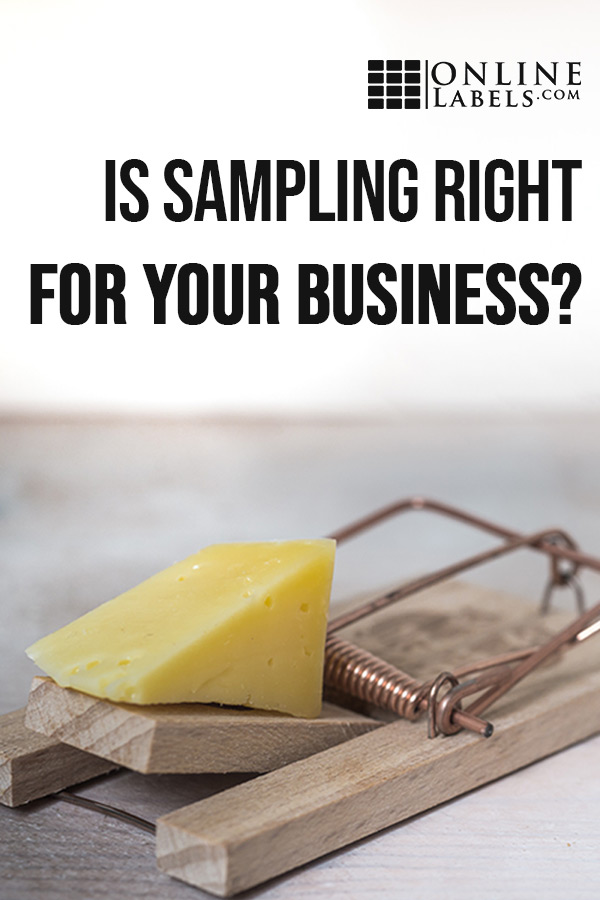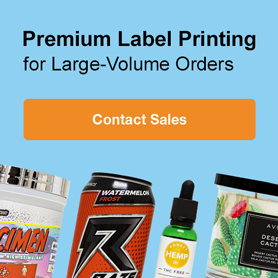Should Your Business Offer Product Samples?
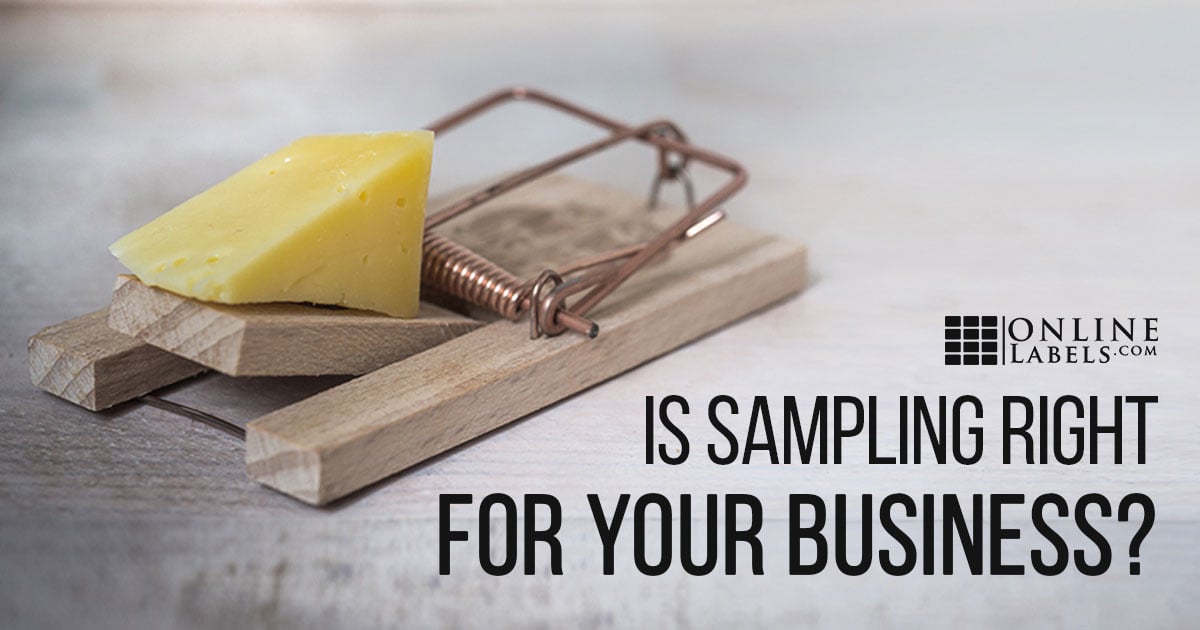
Sampling is a well known marketing tool for food and beverage products, yet virtually any industry can take advantage of it. We've all seen big-box stores sampling lotions, perfume, candles, and the like, but is it something your small business should consider?
In this article, we cover the science behind sampling and how to determine if it's right for your business. We also discuss what items you could sample, where to offer them, and tips on sampling efficiently.
Why Sampling Works

Intuitively, we know samples make people happy. They can drive customers to create a positive association with your brand and are used by many marketers to nudge consumers through the funnel. But there are also tested psychological principles that go into sampling and purchasing.
The main psychological phenomena driving the power of sampling is "the rule of reciprocity." When customers accept your samples as a gift, there's a strong human tendency to feel like they owe you in return. That feeling can stem from human guilt, peer pressure, or a sense of being polite.
Consider that stores like Costco and Trader Joe's always make sure their demo tables are attended by employees. This is because research shows "samplers with a heightened awareness of the presence of others at the sampling station may feel a level of social 'pressure' to make a post-sample purchase."
The Cost of Sampling
As with anything, you need to weigh the pros and cons of sampling to decide if it's right for you and your business. Here are some benefits and drawbacks to consider.
Sampling Benefits
1. Samples drive customers to buy more.
Even customers in the scenario above who have no intention of buying might find themselves tossing the item into their cart. In fact, sampling is a popular upselling tactic.
Marsh Supermarkets in Indianapolis, for example, found sampling can increase sales up to 2,000%. The Snack Factory announced an impressive conversion rate as the result of sampling, as well – a quarter of shoppers who sampled end up purchasing.
2. Sampling gets people talking.
Free samples have been shown to increase word of mouth marketing by 20%. A Cornell study found that improving the tasting room experience transformed "satisfied" customers to "highly satisfied" ones.
On average, those customers "will buy one additional bottle of wine, spend an additional ten dollars, and likely become repeat customers." Not only will customers appreciate the amazing experience they had, they'll tell their friends and social networks.
3. Samples create opportunity.
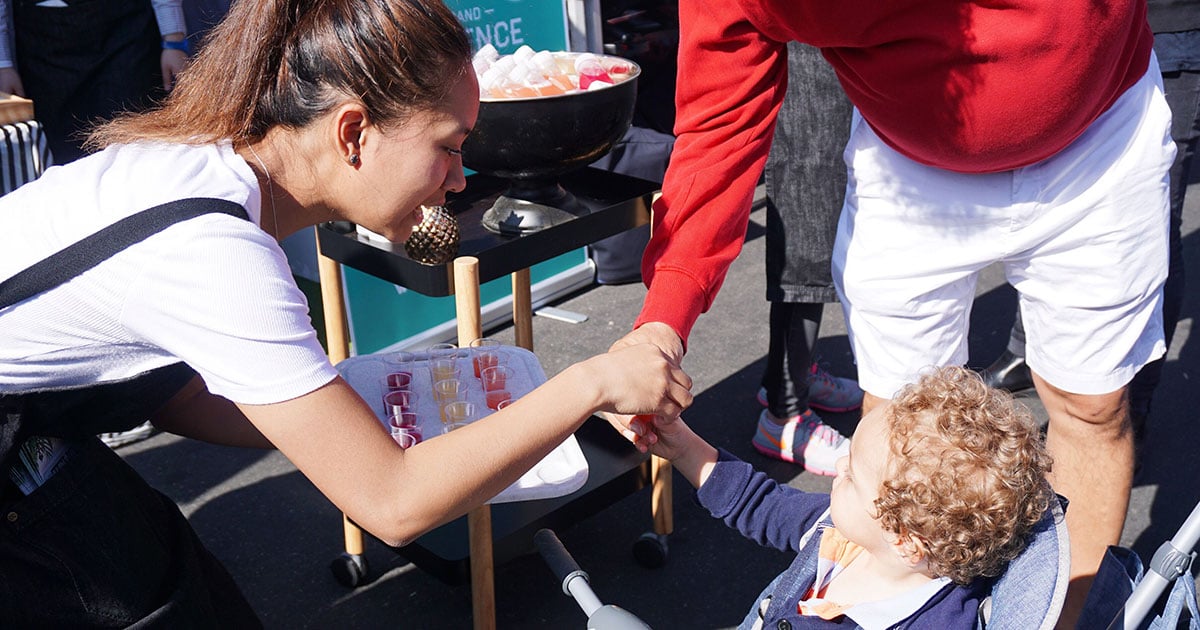
If you're handing out samples in person, you have a chance to meet with your customers, get face-to-face feedback, and test out future products. Ask them what they like and don't like, and how you can improve.
Customers will appreciate you took the time to get to know them, and will remember you for it.
4. Samples are great promotional tools.
Gordon Grade Coffee Company helped New York University students survive Finals Week with free coffee – you can be sure those students were turned into loyal followers.
You could also play into the energy of widely-attended events, like 5ks, races, athletic competitions, and fundraisers. These can be a great opportunity to give away goody bags with promotional flyers and coupons.
5. Samples showcase your packaging and brand.
When customers can hold your products in their hands, they can rate the quality of your materials and packaging. Did you use a flimsy bottle that won't hold up to rigorous use or a nice, sturdy one?
Fully fleshed out samples and packaging are critical to full-size sales down the line. Being able to sell your vision starts with replicating the visual and tactile experience of future customers.
Sampling Drawbacks
1. Money and time costs.
Costs of sampling is the most obvious drawback. Your product costs you money to offer for free and it costs time, as well. If an employee is manning the samples table, that's a cost in labor. Or, if you're offering a freemium software, those free customers may ask for customer support time they're not paying for.
Analyze the costs against the potential in increased profits.
2. Attracting the wrong crowd.

While you certainly want to attract clientele through sampling, be wary of attracting folks who are in it for the freebie alone. Sometimes events attract people with no interest in your product – they're there simply to collect giveaways.
In that case, screen their interest with a conversation before offering a sample.
3. Hassle of finding the right location.
Not every sampling location is going to be right for you. Traffic and exposure may be lower at one location than it's worth. Or the demographic may simply not be right for your product. Finding the right location for your business may be more hassle than you're ready for.
What to Sample
We're most familiar with food and beverage product samples, but other businesses can get in on the action, too. Here are sample ideas for other popular industries.
Cosmetics & Fragrances
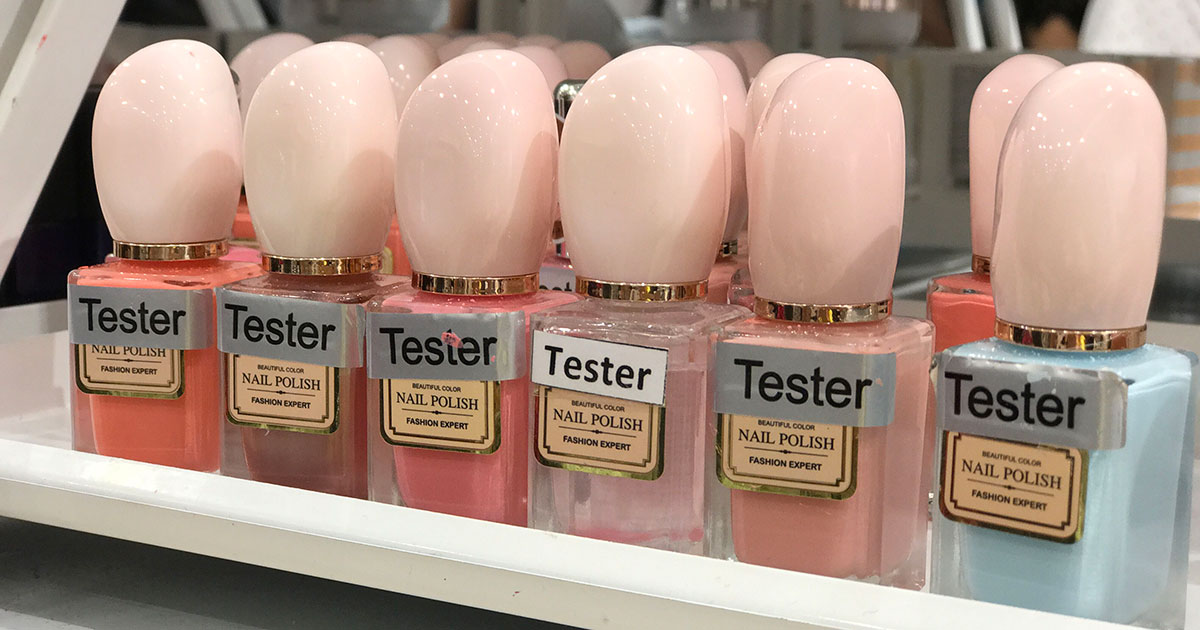
Feelings, color palettes, and scents are hard to describe without first-hand experience. Because words have different meanings to different people and photos come across differently from screen-to-screen, samples in this industry are very helpful.
Could you decide which fragrance to buy without smelling it first? Or which foundation best matches your skin without trying it on?
Software As A Service (SaaS) & Apps
Many SaaS and app companies have got sampling down with free trials and freemium versions. Hundreds even offer an upgraded ad-free version. Think about the last time you played Candy Crush & how tempted were you to pay for new lives?
Food & Beverages

Sampling bites from your restaurant, bakery, cafe, etc is a great way to introduce your food to new customers, or hype-up new menu items.
This is also great for impulse buyers, who love the delicious taste of your handmade goods and want more!
Where To Sample
Decide on your purpose for offering samples. Do you want to introduce a new product? Discover new markets? Bring new customers into the store? Your "why" will inform where and how you deliver samples and measure success.
Your Store
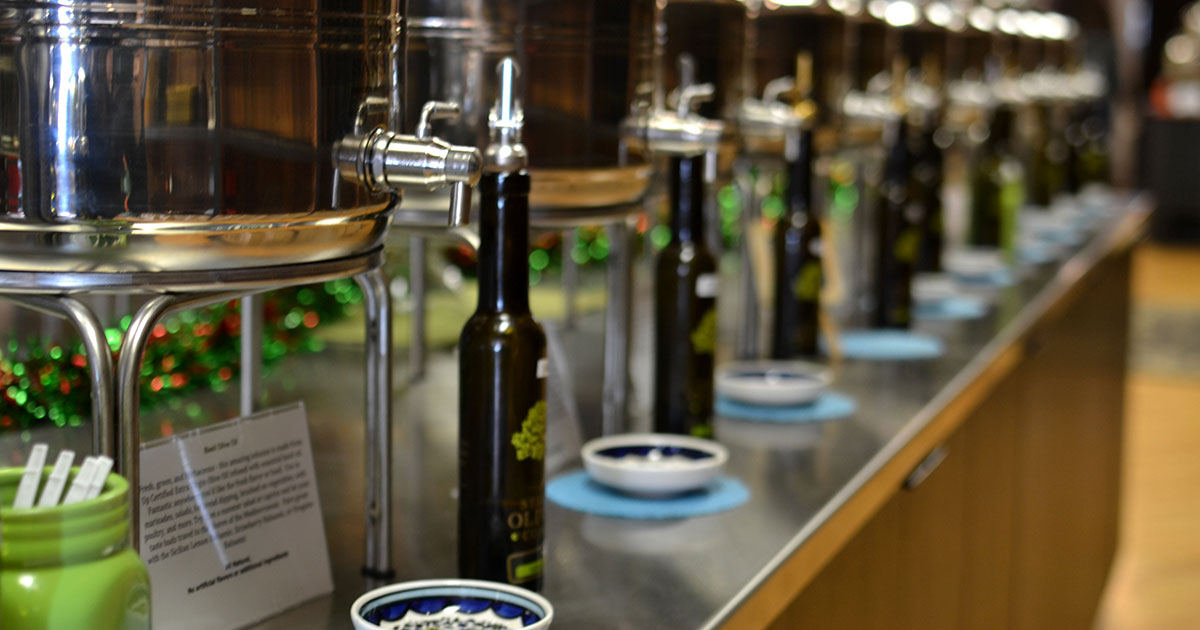
If you have a storefront, offer samples inside. Hang a sign in your window or set up an A-frame outside to draw in foot-traffic.
Once your customers are inside and mingling with your friendly staff, they'll be more likely to buy the product you're sampling!
Farmers Markets
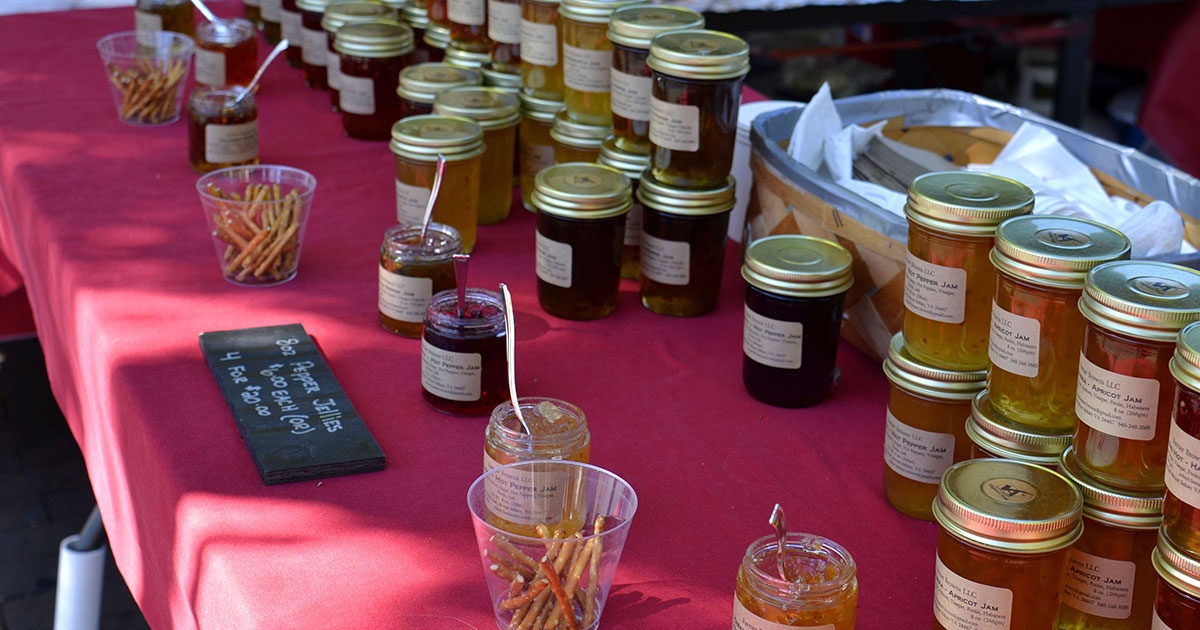
Farmers markets are a fabulous place to set up shop. They're usually held on relaxed weekend mornings, when customers of all backgrounds can leisurely walk through the vendor tents. You'll make their day and they'll be excited to come back for the next farmer's market with you.
Trade Shows
Exhibition events like trade shows exist in nearly every industry and draw people from all over the country or world. The advantage is that attendees are already interested in your industry, so you know they can be a demographic fit for your product. And, you have the chance to talk with them face-to-face as you sell them on your product.
Pro tip: Learn more about labeling for trade shows.
Online
You may think if you sell online that you have limited sampling options, but not so fast. Samples can be thrown into online orders as a special surprise for customers.
Or, offer a free product + shipping promotion, sample packages for purchase, or sample sizes of larger products.
Sampling Tips
Here are a few principles to help you sample successfully.
Limit Choices
When people are faced with an overwhelming number of choices, they'll choose nothing at all. This was shown in the infamous jam experiment. Offer one or two products to sample, no more.
While options and variety are great for your shop, customers during a sampling process may feel analysis paralysis.
Identify Sample-able Products
Don't leave customers guessing whether they can sample certain products. Add any of these professional pre-designed templates to your product containers for a clear indication to passers by.
We offer the above "Not For Sale" sample sticker and "Tester" sticker as pre-printed options as well. Be sure to also check out the rest of our pre-printed business label options for other business necessities!
Measure Success
Keep track of how effective your sample campaigns are. Some key metrics might include profits, social media shares, or email newsletter signups. You want to make sure the time, effort, and supplies you're putting into the process are worth it.
When Not To Sample

There are a few instances and product lines where sampling is best avoided. For example, you may not want to offer samples if you're selling a premium product.
Depending on how high-end your business is, sampling may do more harm than good, devaluing your product and brand. Can you imagine Louis Vuitton giving away a free miniature wallet or a high-end distillery offering pours of a finely aged whiskey?
Or maybe you're selling something that can't be sampled. Not all products can be cut down in size and shelled out to passersby, after all. Some examples include large custom-made items like bikes or furniture.
More likely than not, sampling is a smart choice for business. Allowing your customers to experience your product helps them make an informed decision and can lead to more purchases.
If at first glance sampling doesn't seem feasible for you, we challenge you to get creative! Your ingenuity will pay off in profits, brand recognition, and happy customers.
